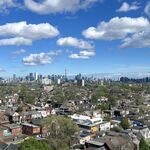Brandon716
Senior Member
Once the NDP decided to pull their support in any coalition scenario, they would leave behind a Liberal party that would be in possession of a significant rift. That would suit the NDP's goal of gunning for the official opposition status.
Does the NDP really have that much national support? While they have support bases across the board (minus Quebec), people who traditionally vote Liberal aren't going to just jump ship permanently.
I know its tantamount to heresy for genuine Liberals to consider working with the NDP, as it is for many dippers to give into 'Liberal Swine' since they think Liberals are sellouts. I've heard all the talking points before...
The reality is that the left is split and needs to work together to gain real power. The NDP will already have unofficial coalition status in a minority Liberal win anyway, so that is irrelevant. Layton will pull the plug on a Liberal minority win any time he chooses. He already did it to Martin.
Why is a messy election where the Liberals don't have the cash to run needed right now?
Last edited:




